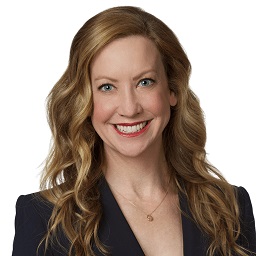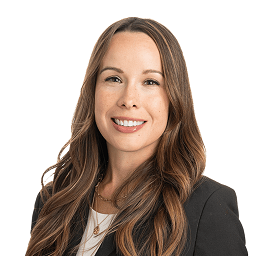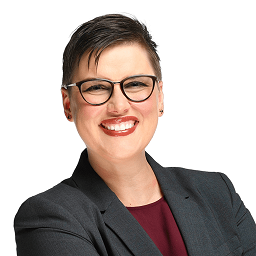Mothers in STEM: A History and A Lesson - Dedicated to Dr. Judith Osha
Throughout the fields of Science, Technology, Engineering, and Mathematics (STEM), women with families constantly work to balance the responsibilities of both their career and their family. Being a mother in STEM is no simple task. It presents constant challenges regarding time management, stress, and overall energy. Despite these adversities, mothers in STEM have continued to become leaders, innovators, and role models for their families and peers.
This Mother’s Day, OBWB is celebrating the work of women contributing to the progress of a variety of STEM fields. In Mothers in STEM, we will showcase the journey of a wonderful group of working women, both past and present. Our featured women are a mixture of OBWB Mothers in STEM as well as Mothers of STEM. These pioneers have “done it all.” They have overcome the bias of being a woman in STEM as well as the bias of being a mother in STEM. We hope these stories provide not only insight to a woman’s experience in STEM, but also provide inspiration to the younger women who are just beginning their careers.
“With men you're expected to do well and get the support, but for females, you have to sacrifice something in a different way from men... I think it's very important for other woman to see that I have had success.” - May-Britt Moser, 2014 Nobel Prize in Physiology or Medicine

Dr. Françoise Brochard-Wyart “When I was little, I liked maths and I was bad at spelling, which was serious at the time, but that's why I became a scientist.”
Dr. Brochard-Wyart speaks fondly of her childhood growing up in the midst of the mountains of Annecy, France. While she describes her education as more informal than the education that was available in nearby Paris, her education constituted principles similar to those taught in present-day Montessori schools. She was able to “have a lot of freedom” and “play with the young people of the farm.” As a daughter of a traveling nurse, Françoise was raised under the influence of a working woman. She was also raised to pursue her interests rather than conform to the societal expectations of women at the time.
Her skill in math prevailed in secondary school which led to her decision to pursue a degree in physics at École Normale Supérieure de Cachan (formerly ENS Cachan). At ENS Cachan, “women were supported on the basis of their results only.” Dr. Brochard-Wyart notes that all of her professors were men, and her classmates were predominantly male. However, she was able to overcome the lack of female mentors and peers by looking to Nobel Laureate compatriots like Marie and Irene Curie. This mindset enabled her to continue her education and obtain her PhD in physics.

During her time in graduate school, she had the first of her six children, OBWB’s French and European Patent Attorney Pascale Brochard. Francoise’s tenure in graduate school coincided with a dynamic time in French History -- “May 1968” -- where a period of civil unrest led to a transformation of worker’s rights, including PhD students. At the time, PhD students received a permanent assistant professorship at the university where their studies took place. As such, Françoise felt secure in her ability to manage being a mother and a successful scientist. This sense of security was further developed due to the availability of governmental assistant and hired support. Her career resulted in significant developments in the dynamics of polymers with applications in fields ranging from enhanced oil recovery to biology. These developments led to her being a world-renowned physicist and a pioneer in her field. Today, Françoise is still a Professeur Émérite at Sorbonne Université as well as a loving mother, grandmother, and great-grandmother.

 “Once they got it established and there was this nucleus of girls in programming, that’s when they let the boys take the class.”
“Once they got it established and there was this nucleus of girls in programming, that’s when they let the boys take the class.”
Dr. Bittner, OBWB’s resident chemical patent agent, grew up in Eastern Pennsylvania where she remembers her time in a Quaker elementary school as one that specifically cultivated her development as a women in STEM. In particular, Sarah remembers when a programming course was introduced at the school. The school only allowed girls to take the course and it was not until “a nucleus” of girls in programming had arisen that the school allowed the boys to take the course. Dr. Bittner also attributes a portion of her confidence to enter the STEM field to her father.
She fondly recalls her childhood comprising of dinners taking place second to the math problem being worked on at the table or family activities that consisted of house maintenance. Her family’s support, as well as her ambition to get a job after university, enabled her to obtain an undergraduate degree and a PhD in Chemistry. She worked initially in industry as a scientist, but after the death of her first born due to SIDS and the birth of her twin sons, she realized she needed and wanted to be able to have a career that was flexible enough to not miss a moment of her children’s lives. This led Sarah to her successful career as a Patent Agent. Being a Patent Agent has allowed Sarah to pursue her innate love of science as well as be there for her children.
 “My dad for sure is the hard pusher, but in an awesome way, like you can do anything…”
“My dad for sure is the hard pusher, but in an awesome way, like you can do anything…”
Lisa Margonis began her career as a mechanical engineer in industry, but quickly found her vocation at OBWB. At OBWB, she worked her way from Patent Engineer to Partner, attending law school along the way. When asked what influenced her to enter the STEM field, she attributed it to her drive to “do anything.” This drive was heavily influenced by her father. Lisa’s father raised her and her siblings to be anything and to do anything. Her family moved to Bogota, Colombia when she was in middle school and an avid soccer player. At the time, women did not play soccer in Bogota. However, Lisa’s father found a club willing to let a girl join the team and Lisa was able to continue her soccer career as the sole American girl on a field of Colombian boys. Games were met with bullying from the crowd, but Lisa didn’t let this affect her and she persevered.
It was experiences such as this that enabled her to choose her profession, not because it was a profession expected of her gender, but because it was a profession that she was truly interested and gifted in. She was also engrained with the strength to do what she was told she could not. As such, she has not only prevailed in her career as a Patent Attorney specializing in the mechanical arts, but she has also succeeded in being a present mother to her two children by being their soccer coach, amongst other things. While her career did include moments that did not cultivate a comforting environment for a woman in STEM, she is optimistic about the future. She notes that a shift is occurring in the industry and specifically reflects in clients who have chosen OBWB, not only for our renowned expertise in intellectual property practice, but because of our female-led teams of mostly women.

“In high school, I don’t think STEM was a thing.”
Growing up in Las Vegas, Nevada, Autumn was not exposed to STEM until she started university. As a child, Autumn knew she wanted to do something important. Initially, she wanted to be an orthodontist. However, at university, Autumn fell in love with biology. Her passion for biology aided in her choice to pursue a PhD in cancer biology. Autumn was her PhD advisor’s first female graduate student, and it was in graduate school where Autumn recalls her first experience with gender bias. Her thesis advisor would make biased remarks such as “you should consider epidemiology instead of cancer biology” because epidemiology was considered the “easier” of the two subjects. Further, a requirement for earning a PhD at Autumn’s university was to get one peer reviewed publication. In contrast, Autumn’s advisor expected her to have two peer reviewed publications. Autumn distinctly recalls that life as a graduate student was challenging and the thought of being a mother and scientist seemed daunting. Due, in part, to the refusal of her thesis advisor to allow her to publish before another team published her work, Autumn decided to enter the workforce with her Master’s degree.
After receiving her Master’s degree, Autumn did clinical research at a veteran’s hospital. She was in a transition period where she was trying to figure out what she wanted to do next. A friend of Autumn, who has started working a boutique intellectual property (IP) firm, asked Autumn to help with prior art searches. This was Autumn’s first exposure to the IP world. She realized that her job at the law firm allowed her to use her technical skills and have the time needed to be the mother she wanted to be. Autumn took and passed the Patent Bar when she was 7 months pregnant with her first child. Working as a Patent Agent enabled Autumn to balance her career and be a full-time mother to her daughter and son.

“Science is the thing I liked the most, but in general I liked school.”
“I am content in the career that I have and the work that I do, and it allows me to actually have a life.”
Dr. Fredrick’s interest in science has been innate. Daughter of a financial planner and an English teacher, Sarah did not have parents in STEM related careers, but was always fascinated by science. Dr. Fredrick was driven by wanting to know how things work and why they work in a certain way. Her parents nurtured her interest in science by sending her to science and technology summer camps and extracurricular activities. During her formative years, Sarah fondly remembers the impact of her science teachers, Mr. Niggle and Mrs. Mueller, encouraging her to continue her pursuit of science. Interestingly, Sarah was also interested in a wide array of other subjects. Sarah chose to pursue her undergraduate degree at a liberal arts college where she majored in Chemistry and minored in Theology and Psychology.
Throughout undergraduate and graduate school, Sarah was surrounded by strong female professors who showed her that it was possible to have both a career in science and be a spouse/mother. In spite of having strong female mentors who successfully managed a career and motherhood, Sarah distinctly remembers that becoming a mother in graduate school was not the normal path and was met with bias and judgment. Phrases like, “She can’t be a dedicated graduate student and a mother,” were frequently heard when a fellow graduate student fell pregnant. After completing her doctorate degree, Sarah worked as a Senior Research Scientist at a startup. Sarah acknowledges that it would have been challenging to be a mother and work as a Senior Research Scientist without a strong support system. Dr. Fredrick serendipitously ended up at a law firm working with a Patent Attorney and decided to become a Patent Agent, which led her to OBWB. Sarah is expecting her first child in the fall. She notes that this decision was made knowing that she is in a position where she feels she will be able to thrive in her career and as a mother.
The world of STEM has historically been unkind to women, and both blatantly overt and unconscious bias has been intertwined into every STEM woman’s career. It wasn’t until recently that the industry has begun to acknowledge and act to change these experiences. These efforts are accepted with gratitude and the seeds of change have already begun to sprout. We at OBWB believe in fostering women’s careers in STEM as well as in the IP field. We want to thank each and every mother that has worked in STEM, is working in STEM, or has raised their children with the belief that they could do anything.
We would also like to dedicate this article to Dr. Judith Osha, the mother of our founding partner, Jonathan Osha. Dr. Osha was a pioneer in her field, but we were too late in obtaining an interview from her. Thank you, Dr. Osha, for this IP firm would not exist without you.




